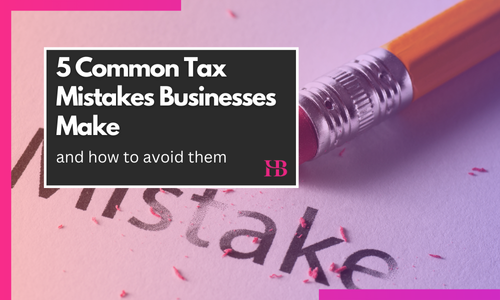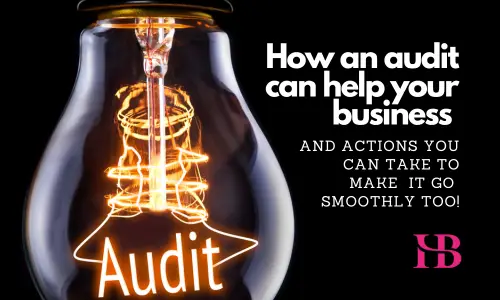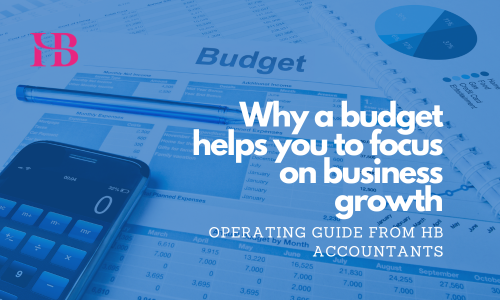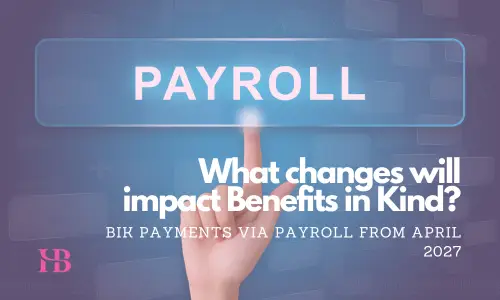We have taken a look at the top common tax mistakes made by small businesses. The HB team works with all our clients to ensure that they remain compliant with tax and filing regulations and we are definitely not saying that all small businesses make these errors. However, it’s always worth reminding ourselves what needs to be done and our top tips to avoid making tax mistakes. Here they are, in no particular order:

Late filing and payment penalties
It is very easy to miss deadlines for tax returns and payment. It can feel like an administration burden or you may simply overlook the date as you are busy working. But if you miss a deadline, then you may face an automatic penalty from HMRC, costly investigations, potential interest charges on late payments and possibly, a damaged credit rating.
It is worth taking steps to mitigate the risk of missing a filing deadline. Here are HBs top tips to avoid late payments and missing filing deadlines:
- Work on your accounts throughout the year – keep on top of invoicing and payments, reconcile payments to the correct account and chase late payments. Spreading out the work means it does not feel like a huge barrier at the end of each financial year.
- Put key filing and payment dates on your calendar – and set reminders a good month or two in advance. A simple fix but one that works!
- Use accounting software that has built in reminders
- Engage with a good accountant or bookkeeper who will remind you of relevant dates
- Send your information to your accountant and file returns early! This helps to avoid any last minute issues and also takes away a whole lot of stress for you and your accountant!
Incorrect expense claims
It is all too easy to claim for non-allowable expenses or overclaim for allowable ones. This is not usually done with ill intent, but from a genuine lack of knowledge or oversight. Common problematic areas are often seen with entertainment expenses, personal use of business assets, clothing and commuting costs.
The way to avoid incorrect expense claims is simple, familiarise yourself with HMRC’s rules on allowable expenses. You can visit the HMRC website and sign up for webinars and email newsletters. You can also consult with your accountant for guidance about allowable expenses as they will understand your business and can offer bespoke advice.
Remember to always keep detailed records and receipts for all expenses and clearly separate personal and business expenses.
Misclassifying employees vs contractors
Particularly, since the introduction of IR35 in 2021, it is important to correctly identify who is an employee and who is a self-employed contractor. As a small business, the onus is on the contractor to determine their employment status, however, it is important that the business keeps records just in case questions are raised, as there is the potential for a claim for significant back taxes and penalties, as well as legal issues.
You can read more about IR35 and how to determine whether someone is an employee or contractor in our blog about IR35 but in summary here are some steps you can take to ensure you correctly classify your workers.
- Understand the criteria for employment status including control, substitution, mutuality of obligation
- Use HMRCs online tool, CEST (Check Employment Status for Tax)
- Have clear, written agreements with all workers
- Regularly review the status of long-term contractors
Failing to keep proper records
Poor bookkeeping and inadequate record-keeping makes it difficult to prepare accurate tax returns. This is related to the first common mistake of late filing – when something is difficult to do, it is likely relegated to the end of the to do list. However, inadequate records can cause problems in the event of a HMRC investigation and can lead to missed opportunities for tax-saving deductions. It can also have a detrimental effect on your strategic plans as you may not realise opportunities for new revenue streams or issues that could cost future sales.
Implementing a robust bookkeeping system that is updated regularly – we recommend at least monthly – will help keep your financial records in order and allow you to more easily understand the trading position of your business. You can consider cloud-based software for the larger small businesses, we are big fan of a simple spreadsheet which may suffice if you are a smaller business.
In addition, businesses should keep all receipts and invoices, and reconcile bank statements regularly to ensure that payments are flowing in and out as they should.
Fail to plan for tax liabilities
It is very easy to think that money in the bank account is money available to be invested in the business or to pay salaries or dividends. Yet forecasting your tax liability and setting aside money to make tax payments is really important. It prevents cash flow problems when tax needs to be paid and removes the potential for late payment penalties and interest.
It may seem obvious but transferring money into a separate tax account is one way to mitigate this common tax issue. To do this you need to regularly calculate your tax liability throughout the year and set aside a percentage of income for taxes. If you feel that you need additional support, you can consider making payments to HMRC on account for Income Tax.
It is really important to stay informed about tax law changes affecting your industry and tax professional tax advice, especially as your business grows to ensure you are paying the right tax and taking advantage of available tax reliefs and allowances such as the Annual Investment Allowance.
In addition, be very cautious of aggressive tax avoidance schemes and always keep business and personal finances separate.
How can we help you?
By avoiding these common mistakes, small businesses can significantly reduce their tax-related stress and financial risks. Regular review of tax practices and seeking professional advice when needed can help ensure compliance and optimise the tax benefits available to you.
HB Accountants is always on hand to support your business and personal finances, and will share information that will help with your tax planning, growing your business or improving your personal life.
For more information about all the ways HB goes above and beyond for you, your company and our community, contact the team at HB Accountants. We’re here to help.
The information contained above is for general guidance purposes only. Whilst every effort has been made to ensure the contents are accurate, please note that each individual has different circumstances and it is essential that you seek appropriate professional advice before you act on any of the information contained herein. HB Accountants can accept no liability for any error
Read Our Latest Blogs Below
- HMRC Advisory Fuel Rates (AFRs) from 1st June 2025
 HMRC has published the latest Advisory Fuel Rates (AFRs) which apply from 1 June 2025. AFRs are the official rates used when reimbursing employees for business mileage in company cars. They’re reviewed every quarter (February, May, August and November) and adjusted in line with fuel prices.
HMRC has published the latest Advisory Fuel Rates (AFRs) which apply from 1 June 2025. AFRs are the official rates used when reimbursing employees for business mileage in company cars. They’re reviewed every quarter (February, May, August and November) and adjusted in line with fuel prices. - How an audit can help your business (and actions you can take to make it go smoothly too!)
 An audit may be a legal requirement for your business but a well managed audit can also boost your business growth and ensure that it is operating in the best way possible.
An audit may be a legal requirement for your business but a well managed audit can also boost your business growth and ensure that it is operating in the best way possible. - Why a budget helps you to focus on business growth
 Are you looking for clarity over the future direction of your business? Do you want to know the actions you should take in order to grow your business? Then consider taking time to create a budget for your business.
Are you looking for clarity over the future direction of your business? Do you want to know the actions you should take in order to grow your business? Then consider taking time to create a budget for your business. - How a SME Owner Can Create More Time
 SME owners and managers – are you part of the one in five small and medium-size enterprise managers that work on average an additional 3 hours a day on a regular basis? Or one of the 33% that claim that there just aren’t enough minutes in a day to get everything completed? (The Independent study … Continue reading
SME owners and managers – are you part of the one in five small and medium-size enterprise managers that work on average an additional 3 hours a day on a regular basis? Or one of the 33% that claim that there just aren’t enough minutes in a day to get everything completed? (The Independent study … Continue reading - A New Academic Year for our Student in Zambia
 As the new academic year unfolds in Zambia, we are delighted to share an update about our sponsored student, Getrude. Currently in her second year at Chalimbana University, Gertrude is studying Business Administration in Accounting and Finance.
As the new academic year unfolds in Zambia, we are delighted to share an update about our sponsored student, Getrude. Currently in her second year at Chalimbana University, Gertrude is studying Business Administration in Accounting and Finance. - Benefits in Kind via the Payroll
 From April 2027, Benefits in Kind (BIK) payments will need to be paid and recorded via payroll each month. Businesses need to prepare for this change.
From April 2027, Benefits in Kind (BIK) payments will need to be paid and recorded via payroll each month. Businesses need to prepare for this change.

